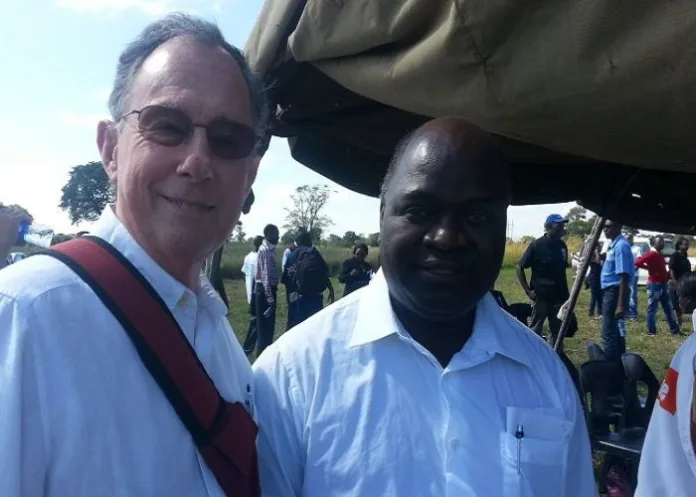Kent Campbell, an instrumental figure for 40 years in the global battle against malaria – most notably in Africa, where he led a programme providing bed nets to protect rural villagers – died of cancer last month in Arizona, USA, aged 80.
As chief of the malaria branch of the UN Centres for Disease Control and Prevention (CDC) from 1981 to 1993, and later as an adviser to Unicef and the Bill & Melinda Gates Foundation, Campbell is credited with helping to save lives on multiple continents, reports The New York Times.
In Zambia, where he began working on a programme with the Gates Foundation in 2005, distributing bed nets and newer antimalarial drugs, malaria cases were cut in half within three years. The project was later expanded to more than 40 other African countries.
“His legacy in my country is as one of the people who greatly contributed to the control and prevention of malaria,” said Kafula Silumbe, a Zambian public health specialist who worked closely with Campbell. “It was a collective effort, but he definitely was part of that initial push.”
Campbell had a four-decade-long career in public health.
In 1972, during his paediatric residency in Boston, he joined the CDC as a conscientious objector to the Vietnam War. Shortly afterwards, he was sent to Sierra Leone to help investigate an outbreak of Lassa fever, the virulent haemorrhagic virus.
“I had never heard of Lassa fever,” he said in a video history of the CDC.
He had little to no training in the importance or use of personal protective equipment. For relief from the intense heat, he poked holes in his breathing apparatus, which he later admitted was a bad idea.
Hoping to learn more about Lassa fever, agency officials dispatched him to Ireland to conduct serologic, or antibody-detecting, tests on nuns who had previously worked in Sierra Leone. He travelled there with his wife, Elizabeth Campbell, whom he had married in 1966.
A few days later, he nearly collapsed from an intense headache, high fever and an excruciating sore throat.
The couple then travelled to London so that he could be treated at a hospital with expertise in tropical diseases. The episode then took a surreal turn: when US officials sent a military transport plane to retrieve them, they shipped inside it a spare Apollo space capsule, which the Campbells rode in as a precautionary measure.
“In retrospect, it’s not clear whether I had Lassa fever,” Campbell said. “But clearly I didn’t die.”
With a reprieve on life and a newfound appreciation for disease hunting, he stayed on with the CDC. He moved to El Salvador in 1973 to take on malaria, which had been essentially orphaned by global public health agencies and aid groups.
Carlos Clinton Campbell III was born in 1944, in Knoxville, Tennessee, and took an early interest in medicine after his sister and mother both died from cancer.
He studied biology at Haverford College in Pennsylvania, graduating in 1966. He earned his medical degree from Duke University in 1970 and received a master's in public health at Harvard University after completing his paediatric residency there.
He bounced around the world, from the corridors of public health to isolated villages, and back.
After his work at the CDC, he helped create a college of public health at the University of Arizona and consulted for several global health organisations. In 2005, he joined PATH, a health equity non-profit organisation based in Seattle, as director of the malaria programme in Africa funded by the Gates Foundation.
With malaria becoming resistant to the most common drug treatments, he focused on prevention.
“The vector in Africa is basically a single species – distributed all over the continent – called Anopheles gambiae,” he said in an interview. “It is like the superstar of transmitters.”
Two years after the bed-net programme began in Zambia, the country saw a 29% decrease in child mortality, according to PATH.
“To put that in perspective: there's nothing matching that, which is reflective of how much death malaria caused in Zambia and how powerful bed nets are to decrease transmission,” he said at the time. “That’s all it really took. It was just remarkable. Clinics emptied out during the transmission season.”
He retired from PATH in 2015.
See more from MedicalBrief archives:
Africa’s challenge with malaria eradication
Zambia takes strides towards eradication of malaria
Uganda provides 70,000 insecticide-treated mosquito nets to its soldiers

